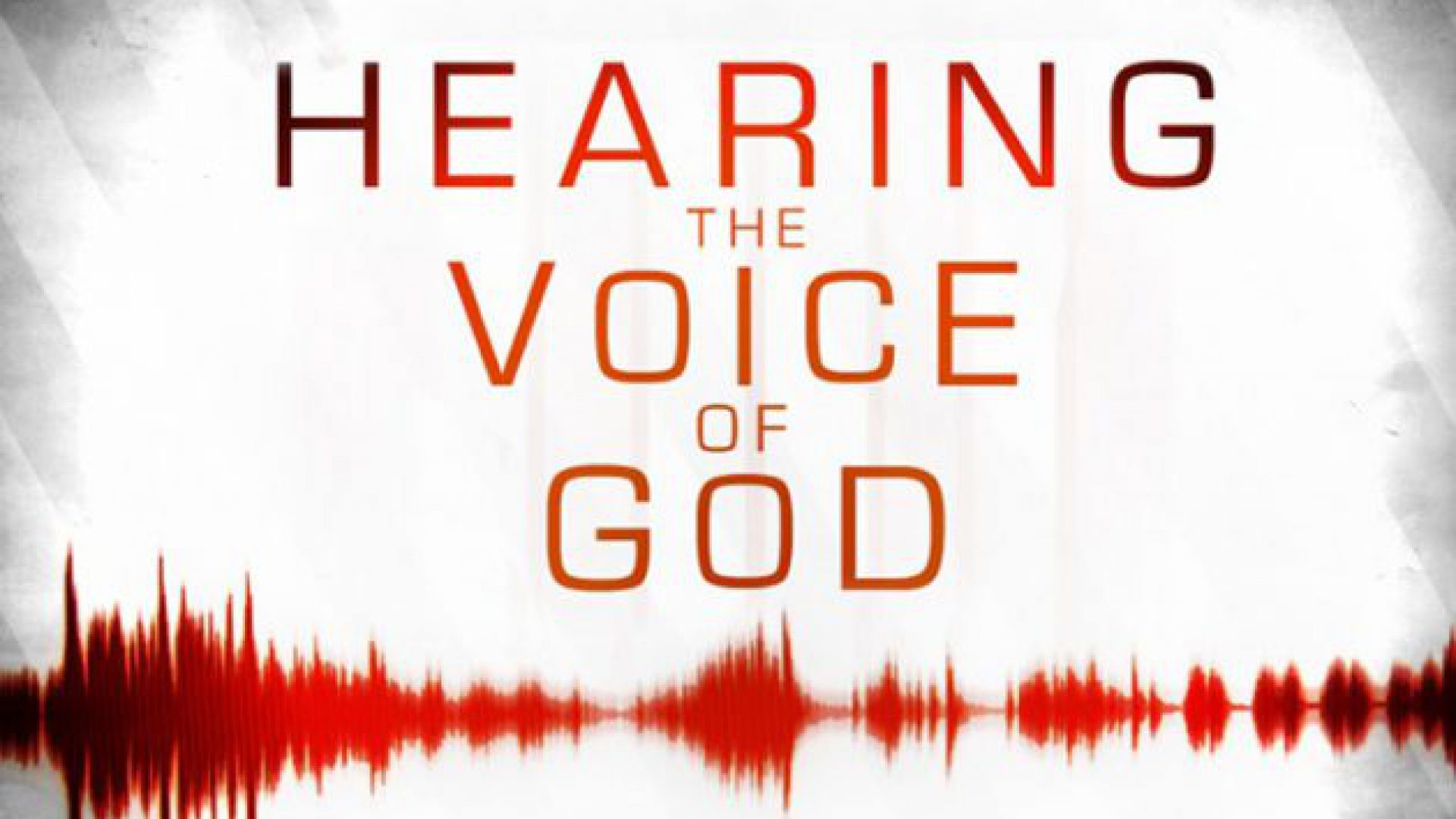THE PURPOSE OF PROPHECY
God has important reasons for including so much prophecy in the Bible. He wants us to understand the role of prophets and the purpose of prophecy
Part of the mission God gives His people involves getting His message out. In the Old Testament He often inspired prophets to proclaim His words. In the New Testament He commissioned His Church to preach the gospel—His message—to this world.
God’s message is a message of warning, a call for repentance and a message of hope and good news. Prophecy has always been a part of that message.
But why? What was the role of prophets, and why does God give prophecies?
Role of prophets
What is the definition of a prophet in the Bible? The Old Testament word prophet comes from the Hebrew word nabi, meaning spokesperson. Two other Hebrew words, ro’eh and hozeh, literally mean one who sees—a seer. In Greek, the word is profetes, meaning one who “speaks forth” (Vine’s Expository Dictionary of the Old and New Testament Words, 1985).
So the role of the prophets was often to foretell the future, but it could also be to forthtell—to share any words of God.
The message of true prophets does not come from their own ideas and imaginations. Peter explained, “No prophecy of Scripture is of any private interpretation [or origin], for prophecy never came by the will of man, but holy men of God spoke as they were moved by the Holy Spirit” (2 Peter 1:20-21).
Like the rest of the Bible, the words recorded by God’s prophets are inspired by God (2 Timothy 3:16).
God inspired the prophet Amos to write,
“Surely the Lord GOD does nothing, unless He reveals His secret to His servants the prophets” (Amos 3:7).
God speaks to us through the prophets, and we should listen.
But the Bible also warns about not listening to false prophets. Even if some of their prophecies come true, if they teach things that go against the truths of the Bible, we must not follow them. See what the Bible says about how to identify false prophets in our article “False Prophets.”
What is the purpose of prophecy?
But why does God include prophecy in the Bible?
Consider the following insights from two of the Prophets that reveal three reasons for prophecy in the Bible.
Jonah and Nahum were both prophets who were given messages from God about Nineveh—a great city that represented the Assyrian Empire. The Assyrians were a brutal and greatly feared enemy of Israel. Both Jonah and Nahum were given prophecies about Nineveh’s destruction. But the books turn out much differently.
Jonah, who prophesied about 100 to 150 years before Nahum, would have been quite happy to see the vivid destruction that Nahum prophesied come to pass. But the story of Jonah adds additional depth to our understanding of what God is doing—and why.
Let’s look at what these two prophecies about Nineveh show us about three of God’s purposes of prophecy.
The events in the book of Jonah happened perhaps 50 years before Assyria took Israel captive. Even then, Assyria was a dreaded and cruel enemy. In Jonah 1:2 God told Jonah: “Arise, go to Nineveh, that great city, and cry out against it; for their wickedness has come up before Me.”
God hates wickedness, and He wants us to hate it too. And that leads us to a first purpose:
1. Prophecy shows God’s justice, and this is intended to lead us to repentance.
What wicked things had Assyria done? Jonah doesn’t give details, but Nahum later gives a list of some of the terrible things that Nineveh had long been known for.
- They conspired against God (Nahum 1:9).
- They were famous for crushing and harshly oppressing their enemies (Nahum 1:13; Nahum 2:12).
- They were known for violence and lies (Nahum 3:1).
- Nineveh “taught them all to worship her false gods” (Nahum 3:4, New Living Translation). Verse 19 says, “Where can anyone be found who has not suffered from your cruelty?” (NLT).
God is righteous and holy and just. He never minimizes sin or says it’s not so bad. His justice requires that He decry evil and point out that sin leads to suffering, destruction and death. He doesn’t want the humans He created to sin or die. God is “not willing that any should perish but that all should come to repentance” (2 Peter 3:9). We’ll come back to this aspect of God’s nature a little later.
2. Prophecy shows God’s power—He always wins! This gives us encouragement.
Nahum prophesied 60 to 100 years after Israel had been cruelly taken captive by Assyria. This was 100 to 150 years after Jonah. In Nahum 1:3 it says: “The LORD is slow to anger and great in power, and will not at all acquit the wicked. The LORD has His way in the whirlwind and in the storm, and the clouds are the dust of His feet.”
God is patient—slow to anger. But in the end His power always wins. Even though people of that time worshipped the “god of storms”—who was called Baal by the Canaanites—God is the one really in control of the whirlwinds and storms. Not only could Jesus control the storms and walk on water, this seems to portray God as walking on the clouds!
In the end, God wins. The people of Nahum’s time needed this encouragement. The people facing the end-time “beast” power will need that encouragement. Understanding God’s power and that He always wins is important for us to understand more about God.
3. Prophecy shows God’s love.
The story of Jonah is a familiar one. After Jonah tried to run away from God, ending up in a great fish for three days and three nights, he finally got the message and went to Nineveh. He told them they would be destroyed in 40 days for their wickedness.
But in one of the very few occasions in the Bible, a group of people actually listened to the warning and repented! They fasted and turned from their wicked ways!
This change of God’s plans shows God’s love. It shows that warnings of prophesied destruction are not given as revenge or angry retribution, but out of love and out of a desire for people to repent and change.
In Jonah 3:10 it shows God’s response: “Then God saw their works, that they turned from their evil way; and God relented from the disaster that He had said He would bring upon them, and He did not do it.”
This change of God’s plans shows God’s love. It shows that warnings of prophesied destruction are not given as revenge or angry retribution, but out of love and out of a desire for people to repent and change.
Seeing prophecy from God’s perspective
But Jonah did not understand and was very angry that his prophecy didn’t come to pass! So God set up an experiment—a demonstration. He made a leafy plant grow up to shade Jonah from the blistering heat. But then He sent a worm that killed the plant. And again, Jonah was very angry!
So God said, in effect: Jonah, if you could love a plant and feel sorry for it when you didn’t even plant or care for it, imagine how much more you’d love it if you put a lot of work into it. And imagine how much more if it was a pet, and especially a pet you had cared for and loved for years.
And imagine how much more you’d love it if it were a human being and especially someone for whom you had cared for years! What about a family? A village? A city or nation? What if you had designed and created them and had plans to adopt them into your own family? What if each of them was a potential spirit being—a member of the God family?
God concluded His teaching moment with Jonah by showing His loving-kindness even toward a wicked nation that repented. He had sympathy toward the large number of its residents who didn’t know better at that time, telling Jonah, “And should I not pity Nineveh, that great city, in which are more than one hundred and twenty thousand persons who cannot discern between their right hand and their left—and much livestock?” (Jonah 4:11).
These two prophecies about Nineveh give us insight into God’s thinking and the purpose of prophecy. Prophecy shows God’s justice (and our need for repentance), His power (and our need to take warning and encouragement) and His great love (which gives us hope in His message of good news).
Is understanding prophecy necessary for salvation?
Prophecy has important purposes, but is understanding it required for salvation?
Understanding every prophecy can’t be a prerequisite of salvation, because many of the great people of the Bible didn’t know or understand every prophecy.
Peter explains that God revealed to some of the prophets that their messages were recorded for a later time, not for themselves. He said that some of these things even “angels desire to look into” (1 Peter 1:10-12).
Daniel was told that his messages wouldn’t be understood until the end time (Daniel 12:4).
But it is not wrong to seek to understand specific prophecies, as Daniel did. For three weeks he fasted and prayed, setting his “heart to understand,” and God answered him (Daniel 10:12).
However, sometimes God’s answer will be “not yet.” And always, God considers our reason for asking.
To really understand prophecy is to see the need to be humble and repentant and compassionate—not vain.
We shouldn’t seek to understand prophecy in order to claim superior mastery of secret knowledge. Knowledge of prophecy should not produce pride, since an underlying purpose of prophecy is to call us to humble repentance.
To really understand prophecy is to see the need to be humble and repentant and compassionate—not vain.
Dangers of ignoring prophecy
Even though a vast understanding of prophecy isn’t given as a requirement for salvation, God expects people to pay attention to the prophecies He directs to them. We must study His prophecies and avoid being fooled by false prophets.
Paul warned in 2 Thessalonians 2:1-4 about those teaching alternate versions of end-time prophecy. “Let no one deceive you,” he said, and gave specific biblical prophecies we need to know in order to not be deceived.
In Matthew 24:5, 11 and 24, Jesus repeatedly warned about those who will deceive many—even God’s chosen people, if they allow themselves to be tricked.
Dangers of God’s people not preaching prophecy
Ezekiel 33 shows that God calls people to be watchmen—to warn of impending danger and to call people to repentance.
Jesus Christ took this responsibility in His preaching. He proclaimed, “The time is fulfilled, and the kingdom of God is at hand. Repent, and believe in the gospel” (Mark 1:15).
This responsibility was passed on to His followers and is part of the mission of the Church of God (Matthew 28:19-20; 24:14).
Paul felt this weight of responsibility. “For if I preach the gospel, I have nothing to boast of, for necessity is laid upon me; yes, woe is me if I do not preach the gospel!” (1 Corinthians 9:16).
John noted that this message of warning is intended to be a blessing:
“Blessed is he who reads and those who hear the words of this prophecy, and keep those things which are written in it; for the time is near” (Revelation 1:3).
Dangers of private interpretations of prophecy
Everything God has recorded for us in the Bible is for our benefit and to equip us “for every good work” (2 Timothy 3:16-17). So we must handle it carefully.
John warns about adding to or taking away from the words of the book of Revelation (Revelation 22:18-19). This echoes the words of Moses: “You shall not add to the word which I command you, nor take from it, that you may keep the commandments of the LORD your God which I command you” (Deuteronomy 4:2).
Peter explains that all biblical prophecy comes from God:
“Knowing this first, that no prophecy of Scripture is of any private interpretation, for prophecy never came by the will of man, but holy men of God spoke as they were moved by the Holy Spirit” (2 Peter 1:20-21).
The Greek word translated “interpretation” here can, in this context, mean “origin,” but clearly God also doesn’t want His inspired Word to be twisted or misinterpreted. We should be careful to recognize when a prophecy is understandable, and when we are only speculating about how it may be fulfilled.
How to understand prophecy
All prophecy, like all the rest of the Bible, is true and will not contradict other prophecies. The foundational principle is to study each prophecy in context, as well as in the context of all other prophecy.
Help us reach millions with the gospel of Christ and His love with your contributions




